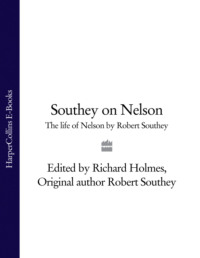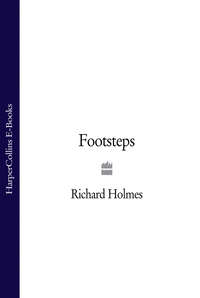
Полная версия
Coleridge: Darker Reflections
Sicily held other temptations. On 26 September the opera season opened at Syracuse, and Coleridge first saw the young Italian prima donna Anna-Cecilia Bertozzi.78 He was immediately captivated by her singing of Metastasio’s aria, “Amo Te Solo” (“I love none but Thee”). He was swept by “a phantom of memory”, and experienced the “meeting soul” of music, for Cecilia (named after the patron saint of music) fatally reminded him of a younger version of Asra.79
By 11 October he had met her backstage, and had made the first of a series of secret assignations, though “the voice of Conscience whispered to me, concerning myself & my intent of visiting la P[rima] D[onna] tomorrow”.80 These assignations continued through October and early November, becoming a source of both guilt and delight, so that the green lane with its long line of softly swaying trees up to the Opera House began to haunt him with its “aromatic Smell of Poplars”. His “cruelly unlike Thoughts” would come upon him at each return, with gathered force: “What recollections, if I were worthy of indulging them.”81
Cecilia’s singing could be heard outside in the Opera House yard and the street, and the “ragged boys & girls” would learn her songs after a couple of performances, so that even during the day the back-alleys of Syracuse rang with the sound of urchins mimicking her “with wonderful accuracy & agility of Voice”.82 He also saw Cecilia dancing at the public balls, and perhaps danced with her, at least in imagination: “Dancing, when poor human Nature lets itself loose from bondage & circumstances of anxious selfish care: it is Madness.”83
He was invited to her dressing-rooms, and on at least one occasion to her bedroom. A single tiny fragment of verse about Cecilia survives in his Notebooks, though almost obliterated by a later hand: “…the Breeze, And let me float & think on Asra/Thee, And…Body…myself in suffering…applied spiritually.”84 Perhaps he was also thinking of Cecilia when he described the quintet singing at the Syracuse Opera, with voices that “leave, seek, pursue, oppose…and embrace each other again”, as the sweet image of “wayward yet fond lovers” who quarrel and make up and achieve “the total melting union”.85
It would not be surprising if, after five months alone in the Mediterranean, cut off from those he loved, immersed in the wine and languors of the South, and looking for hope and “regeneration”, the 32-year-old Coleridge had embarked on an affair with the enticing Cecilia. One might even hope that he did, if only to release him from the ghost of Asra. During a violent autumnal thunderstorm at the Villa Timoleon, which broke like “an explosion of artillery” and set the dogs barking throughout Syracuse, Coleridge suddenly recalled another femme fatale he had created: “Vivid flashes in mid day, the terror without the beauty. A ghost by day time: Geraldine.”86
But the evidence of the Notebooks is very thin at the time, and Cecilia herself remains a mystery. She was evidently young, probably in her early twenties, for her first recorded performances were at Rome in 1798–9.87 She was also talented, because she became the prima donna at Palermo by 1809. Coleridge’s later recollections also suggest that she was beautiful, naive and vivacious, and fully prepared to take him to bed. In these recollections of 1808 Coleridge admitted how much he longed for Cecilia during those dreamy weeks: “the outworks of my nature [were] already carried by the sweetness of her Temper, the child-like Simplicity of her Smiles, and the very great relief to my Depression and deathly Weighing-down of my heart (and the Bladder) from her Singing & Playing, so that I began to crave after her society.” There was sexual attraction, he felt, on her side too. “Neither her Beauty, with all her power of employing it, neither her heavenly Song, were as dangerous as her sincere vehemence of attachment to me…it was not mere Passion, & yet Heaven forbid that I should call it Love.”
But paradoxically it was the directness of Cecilia’s feelings, her sunny Italian spontaneity, that seemed to frighten him. It was too simple, too sexual, for Coleridge’s anxious sense of self and religious conscience to accept. He craved, but he could not give way. When it actually came to the point, he could not deliver himself up into the arms of the warm South. “Remorse and the total loss of Self-Esteem would have been among the Knots of the Cords by which I should have been held.” What was offered to him as a joyful release, came to seem like a terrible trap, a bondage. That is why, it seems, Coleridge finally refused Cecilia.
Coleridge explained this to himself as Asra’s triumph, a triumph of his better nature. He was saved by a vision of Asra which came to him even in Cecilia’s bedroom. “When I call to mind the heavenly Vision of her Face, which came to me as the guardian Angel of my Innocence and Peace of Mind, at Syracuse, at the bedside of the too fascinating Siren, against whose witcheries Ulysses’ Wax would have proved but a Half-protection, poor Cecilia Bertozzi…I was saved by that vision, wholly & exclusively by it, and sure I am, that nothing on earth but it could at that time have saved me.”88
But was he saved? Or had he delivered himself up into a far more subtle bondage, the cords of his old English dreams which he had hoped to break? There is no mention of more conventional loyalties, his marriage vows, his feelings for his children. It was almost as if Asra had prevented him from discovering something vital about his own sexual nature, had saved him not from sin but from self-knowledge. She had preserved his “Innocence and Peace of Mind”, not his purity.
Perhaps Coleridge no longer wanted real women at all, or only in his opium dreams, singing like Abyssinian maids of Mount Abora. Were these his “cruelly unlike Thoughts” on the way to visit Cecilia? He wrote gloomily: “I tremble to think what I was at that moment on the very brink of being surprised into – by the prejudices of the shame of sex, as much as by the force of its ordinary Impulses.”89 Perhaps those ordinary impulses were being destroyed.
Whatever really happened between Coleridge and Cecilia Bertozzi, the end of October 1804 marked a turning point in Sicily. His birthday entry of 21 October was miserable, lamenting his “habit of bedrugging the feelings, & bodily movements, & habit of dreaming”. He had “fled like a cowed Dog” from the thought of his age, “so completely has a whole year passed, with scarcely the fruits of a month…I am not worthy to live…I have done nothing! Not even layed up any material, any inward stores – of after action!”90
In fact he had just sent off the large packet of work to Wordsworth and Sir George Beaumont (including now a Sicilian journal) in the care of Major Adye, who was returning to England via Gibraltar. And he was planning a trip to Messina and Naples. Daniel Stuart was beginning to use his Malta papers for leaders in the Courier in London, while Wordsworth was tracing his journeys in imagination in Book X of The Prelude, re-dedicating the poem to Coleridge the wanderer.
Oh! Wrap him in your Shades, ye Giant Woods,
On Etna’s side, and thou, O flowery Vale
Of Enna! Is there not some nook of thine,
From the first playtime of the infant earth
Kept sacred to restorative delights?
Wordsworth was blissfully imagining Coleridge, “a Visitant on Etna’s top”, a “lonely wanderer” with “a heart more ripe” for pleasure, drawing inspiration from Aresthusa’s fountain (on the quayside at Syracuse) and “divine” nourishment from Theocritus’s bees who fed the exiled Comates.91 He hoped he would linger there as a happy votary, “and not a Captive, pining for his home”. Nonetheless, Wordsworth also expected Coleridge to return as promised by the following spring, and sort out his marriage and his domestic arrangements.
Coleridge clambered over the ruins of the Greek amphitheatre above Leckie’s villa, but was most drawn to the area of caves and limestone quarries with its famous “Ear of Dionysus” and the “Quarry of the Capuchins”, which with its groves and flowering cliffs appeared a sort of miniature garden of Eden. (Yet it was here that 7,000 captive Athenian soldiers died in a kind of concentration camp in 413 BC.)92 Serious archaeology did not begin until a generation later, but in this autumn of 1804 the most beautiful of all Sicilian statues, the headless Landolina Venus with her shining marble breasts and large voluptuous limbs, was dug out of the earth like a spirit returning from the underworld.
Coleridge described the ruins and the caves in detail, with Etna’s cone hovering above the Epipoli ridge in its “floating mantle of white smoke”; and he took a boat to Tremiglia where Neptune was buried under a bay tree, “with vines wreathing about it: Sleep, Shade, & Quiet!”93 Standing high above the bay of Syracuse, surrounded by these buried antiquities and strange portents, he watched the sun go down into the sea, and wrote one of his most haunting Mediterranean fragments, “A Sunset”. Its thirteen lines end with a shiver of Delphic prophesy, as if the classically haunted landscape would soon release its violent gods and heroes once again as the sun disappears.
Abrupt, as Spirits vanish, he is sunk!
A soul-like breeze possesses all the wood. The boughs, the sprays have stood
As motionless as stands the ancient trunk!
But every leaf through all the forest flutters,
And deep the cavern of the fountain mutters.94
10
Despite the affair with Cecilia Bertozzi, or perhaps because of it, Coleridge was now anxious to press on to Naples. He was restless in Syracuse, decayed and baroque, with its corruption and gossip, and the oppressive omnipresence of its Catholic priests. “I found no one native with whom I could talk of anything but the weather and the opera: ignorant beyond belief – the churches take up the third part of the whole city, & the Priests are numerous as the Egyptian Plague.”95
On 23 October, Sir Alexander sent him a letter of recommendation to Hugh Elliott, the British Minister at the Court of King Ferdinand in Naples. It shows that Coleridge was already held in high esteem, and puts his private feelings of worthlessness in a more generous perspective.
My dear Sir, I beg to introduce to your Excellency Mr Coleridge whose literary fame I make no doubt is well known to you. He possesses great genius, a fine imagination and good judgement, and these qualities are made perfect by an excellent heart and good moral character. He has injured his health by intense study, and he is recommended to travel for its re-establishment. You will have much pleasure in his conversation…96
But on 5 November, just as he was preparing to board a carriage for Messina, Coleridge was dramatically drawn back into his new role as public servant and all further wanderings were cut short. A diplomatic incident took place in Syracuse harbour, and Leckie deputed Coleridge, as Sir Alexander’s personal emissary, to deal with it. As unexpected as it might seem, Coleridge became part of the British naval war machine.
Four days previously a French privateer had sailed into Syracuse with two captured British merchantmen, claiming the rights of a neutral port to unload its prizes. A British navy cutter, L’Hirondelle, was immediately dispatched from Valletta to dispute the claim, and anchored alongside the privateer with broadside cannons run out, “tompions” uncovered and trained on the French ship. Both captains appealed to the Sicilian Governor, while threatening to blow each other out of the water. Officially the matter turned on the validity of the privateer’s papers, and whether it had the right to take prizes on the high seas under the normal articles of war between the two sovereign states, or whether it was simply a pirate flying the French flag for its own convenience. Unofficially, as so often in these incidents, everything depended on what political pressure could be brought to bear.
Leckie seems to have realized early on that the privateer’s papers were in fact valid, so he took Coleridge with him to make the best of a bad job. The priority was to defuse an ugly situation at the harbour front, where the British Captain Skinner soon found himself surrounded by a hostile crowd. When Leckie and Coleridge arrived at seven in the evening, bloodshed seemed imminent. “On stepping out of the carriage I found by the Torches that about 300 Soldiers were drawn up on the shore opposite the English Cutter, and that the walls etc. were manned: Mr Skinner and two of his Officers were on the rampart, and the Governor and a crowd of Syracusan nobles with him at the distance of two or three yards from Mr Skinner.”97 The Governor “talked, or rather screamed, indeed incessantly”.
Coleridge was surprised to discover that he himself remained calm. “I never witnessed a more pitiable scene of confusion, & weakness, and manifest determination to let the French escape.” The French privateer captain hurled abuse from a nearby wall, but was stoically ignored. Leckie and Coleridge insisted that nothing should be done until the privateer’s papers were translated (from Italian) and properly examined the following day. At last order was restored, the French crew were put under guard at the Lazaretto, and Captain Skinner was removed to the safety of Leckie’s house.
Over the next two days Coleridge visited the Syracuse Governor, and disputed the privateer’s papers. He also drew up a long and vividly circumstantial account of the whole incident for Sir Alexander. It was soon clear that the prize and ransom money would not be released: the Governor “will acquit the Crew of Piracy, and suffer them to escape, and probably make a complaint against Mr Skinner”.
Coleridge quickly realized that it was now Captain Skinner who was in difficulties, having failed in his mission and being liable to reprimand in Malta. He therefore heavily weighted his report in Skinner’s favour, and volunteered to return to Valletta on L’Hirondelle to deliver the report in person. He wrote firmly: “It is but justice however to notice the coolness, dignity and good sense, with which Mr Skinner acted throughout the whole Business, and which formed an interesting Contrast to the noisy Imbecility of the Governor, and the brutal Insolence of the Commander of the Privateer.”98
This supportive action of Coleridge for the young captain, in such an unenviable situation, was never forgotten. It not only impressed Sir Alexander, it made him lasting friends among the whole circle of British naval officers on the Malta station for the rest of his stay. He was accepted, in their tight-knit circle, as “a friend in need”, who could be counted on. It was also noted among several American naval officers, temporarily stationed at Syracuse, among whom was the gallant Captain Stephen Decatur, famed for his recent exploit in blowing up the captured Philadelphia in Tripoli harbour (and later for his saying, “my country right or wrong”).
Decatur became one of Coleridge’s warmest admirers. Thus began a connection with Americans in the Mediterranean which had a lasting impact on his stay. Coleridge was back in Valletta on 8 November, and while in quarantine (for plague had been declared) completed his report, with nine documents annexed, for Sir Alexander. He concluded: “of course nothing further was to be done…and instead of going to Messina have returned to Malta, thinking, that I might be of some service perhaps to Captain Skinner in the explanation of the Business.”99
He returned to Sir Alexander’s congratulations, and glorious autumn weather, the trees “loaded with Oranges” and his health “very greatly improved in this heavenly climate”.100 He was paid four months’ back-salary of £100, and given a new set of rooms in the garrets of the Treasury building (now the Casino Maltese) with a decorated ceiling and huge windows “commanding a most magnificent view” of Valletta harbour. The ceiling depicted the Four Winds as baroque, curly-headed angels “spewing white smoke”, and whirling around a mariner’s compass in the middle.101 Coleridge would spend many hours in the coming months contemplating their navigational symbolism, and then gazing out over the sea with all its possible voyages.
11
The first of these was no less than a trip to Russia and the Black Sea. One of Sir Alexander’s primary duties in the defence of Malta was to obtain corn supplies, and each spring he sent a special mission to purchase corn in Greece, Turkey and the Crimea. He now requested Coleridge to consider undertaking the 1805 mission, in company with a Captain Leake, departing in January for a round trip of three or four months. “The confidence placed in me by Sir A. Ball is unlimited…but it will be a most anxious business – as shall have the trust and management of 70, or 80 thousand pounds, while I shall not have for my toils & perils more than 3 or 4 hundred pounds, exclusive of all my expenses in travelling etc.” For the moment he was undecided.102
The Russian proposal finally forced Coleridge to turn to the question he had been avoiding for many months, not least at the bedside of Cecilia Bertozzi. What was he really doing in the Mediterranean? Did he intend to make a new life out there, to abandon once and for all the difficulties of his marriage, the affections of his children, the ambiguous dreams of happiness with Asra and the Wordsworths? Could he remake his career as a civil servant and diplomat, writing poetry and political reports, following Sir Alexander’s wartime star, drawing an ever-increasing salary, and settling in some exotic country villa shrouded in orange and lemon groves, waited upon by servants and some dusky, voluptuous Italian muse? Could this be a rebirth, a second life; or an ultimate self-abandonment, with the alluring demon of opium ever at his side?
It is clear that the answer hung in the balance for many weeks in the winter of 1804–5, and was not fully resolved until the following summer. But now for the first time he faced it. In a long letter of 12 December to his wife Sara, he set out the position. His health was radically improved, his work for the government was valuable and well paid, he could guarantee her an allowance of £100 a year and a continuance of his life assurance policy in her favour, as well as the £150 Wedgwood annuity. “I remain faithful to you and to my own Honour in all things.” He was “tranquil”, though never happy – “no visitations of mind or of fancy” – and he agonized always over his children – “My children! – my children!” – sometimes in “a flood of tears”. He had only agreed to consider the Russian mission “in a fit of Despair, when Life was a burthen to me”, and he would refuse it “on the whole, if I could get off with honour”. Yet all the same, he might stay in the Mediterranean, in Malta or Sicily or Sardinia. He admitted this in a sudden burst of explanation and self-contradiction, which well expressed his divided feelings.
If I could make up my mind to stay here, or to follow Sir A.B. in case that circumstances & changes in the political world should lead him to Sardinia, no doubt, I might have about £500 a year, & live mainly at the Palace. But O God! O God! if that, Sara! which we both know too well, were not unalterably my Lot, how gladly would I prefer the mere necessaries of Life in England, & these obtained by daily Effort. But since my Health has been restored to me, I have felt more than ever how unalterable it is!103
One wonders how Sara Coleridge would have understood this. Her wayward husband’s “unalterable lot” could be taken as simply a reference to his opium addiction, which had been known to her ever since 1801. Or it could be a darker admission, of Coleridge’s depression and unhappiness, his emotional incompatibility with her, and still obsessive love for Asra which made any true return and reunion impossible. Perhaps indeed the two elements were inextricably involved for him, and he was trying to get her to accept this. He concluded his letter with a formal assurance that “whatever & wherever I am” he would make it his “first anxiety and prominent Duty” to contribute to her happiness; and signed “most anxiously and affectionately, your Friend and more than Friend, S. T. Coleridge”. But it could not have been a reassuring letter to receive.104
Sitting up in his garret in the Treasury, gazing out at the “beautifully white sails of the Mediterranean (so carefully when in port put up into clean bags)”, Coleridge considered the same problem in the privacy of his Notebooks. He felt the “Quietness, Security within & without in Malta”.105 He valued the regularity, the naval comradeship among the officers, the smooth sequence of time and command, “the rings of Russet smoke from the evening Gun, at Valletta”.106 He was working; he was content; he saw a possible future for himself.
But was he happy? In a long, calm, reflective entry he considered it. “Days & weeks & months pass on; and now a year; and the sun, the Sea, the Breeze has its influences on me, and good and sensible men. – And I feel a pleasure upon me, & I am to the outward view of all cheerful, & have myself no distinct consciousness of the contrary; for I use my faculties, not indeed as once, yet freely. – But oh [Asra]! I am never happy, – never deeply gladdened – I know not, I have forgotten what the Joy is of which the Heart is full as of a deep & quiet fountain overflowing insensibly; or the gladness of Joy, when the fountain overflows ebullient – STC.”107
That absence, surely, was his unalterable lot; and for the moment he rested within it, waiting upon events. Through the long nights he read deeply, Thomas More on Utopia, Sir Thomas Browne on religion, Harrington on government. No letters reached him from England.108
On 18 January 1805, the eighty-year-old Public Secretary of Malta, Mr Macauley, died in his sleep in a thunderstorm. Coleridge was immediately offered and accepted the post of Acting Public Secretary, the second in diplomatic rank to the Governor, with a salary of £600 a year. The Russian mission was put aside, and Coleridge agreed to remain with Sir Alexander in Malta for the next three months or until the arrival of the new Public Secretary, Mr Chapman, on the springtime convoys in March or April. The post was distinguished but laborious, requiring regular work in Sir Alexander’s cabinet, the drafting of a steady stream of bandi or civil decrees, and attendance in the law courts.109
Coleridge was pleased, for though it curtailed the opportunities for further travel and writing, it would sort out his finances, and give him valuable experience of public affairs. It also put off the problematic question of his return from the Mediterranean. He wrote cheerfully to Southey, who had become in effect the guardian of his children at Greta Hall: “I am and some 50 times a day subscribe myself, Segretario Publico dell’Isole di Malta, Gozo, e delle loro dipendenze. I live in a perfect Palace, & have all my meals with the Governor; but my profits will be much less, than if I had employed my time & efforts in my own literary pursuits. However, I gain new Insights; & if (as I doubt not, I shall) I return, having expended nothing, having paid all my prior debts…with Health, & some additional knowledge in Things & Languages, I shall surely not have lost a year.”110
But as he settled into his work, letters did begin to reach him from England, and the news that they brought was bad and began to throw his plans into disarray. First was the rumour that Mr Jackson, the landlord of Greta Hall, was considering selling the house in his absence, leaving his family and Southey’s without a home. Second was the bitter intelligence that his friend Major Adye had died of plague in Gibraltar and all his effects were burnt by quarantine officers. Thus one by one, most of Coleridge’s literary papers of the previous year had been destroyed. He had lost the entire travel journal for Beaumont, the letter to Wordsworth on “The Recluse”, an extended political essay for Stuart, and several long family letters. All back-up copies of these had also been lost from the frigates Arrow and Acheron, thrown overboard according to navy regulations during pursuit by French privateers.111








